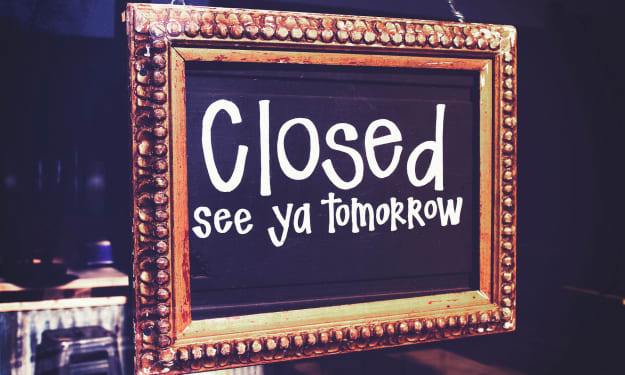The History Behind the First Suicide Hotline
A beacon of hope in times of crisis

We all have bad days-days where nothing seems to go right and everything feels bleak. But what happens when those bad days turn into something more? What happens when you're so overwhelmed that you feel like you can't go on anymore?
Suicide is a sensitive and taboo topic, often left untouched and buried beneath the surface of everyday life. But as the numbers of suicide deaths increase each day, it is essential to have access to counseling and support. That's where the suicide hotline comes in. This essential service offers a safe place for those struggling with dark thoughts and suicidal tendencies, providing advice, empathy, and understanding to those who need it most. But have you ever wondered about the history behind the first suicide hotline?
It started with a funeral
In 1935, while serving as a young Anglican priest in England, Edward Chad Varah was called upon to preside over the funeral of a 13-year-old girl. This young girl tragically took her life when she started menstruating, believing she had contracted an STD. Isolated and lacking proper sexual education, she saw no other option but to end her life to avoid the perceived shame of dying from a venereal disease.
At her gravesite, Chad Varah solemnly vowed to prevent others from suffering a similar fate attributed to isolation and a lack of knowledge.
Who was Edward Chad Varah?
Edward Chad Varah, the eldest of nine children, was born in a vicarage in Humber, England. His father, the local vicar, named him after St. Chad, the parish founder. Chad Varah pursued a Politics, Economics, and Philosophy degree at Keble College in Oxford before studying for the ministry at Lincoln Theological College. Following in his father's footsteps, he became an ordained deacon in the Church of England in 1935 and a priest in 1936.
After his graveside vow, Chad Varah became a pioneering advocate of sex education in England and embarked on his journey by educating children who inquired about sex.
Chad Varah understood the value of such knowledge, as he had received "the birds and the bees" talk from a missionary bishop when he was just 12 years old. In his 1992 autobiography, "Before I Die Again," he candidly revealed that learning about masturbation, a practice he had begun even before puberty, was a normal part of adolescence that brought him a sense of relief.
As expected, his progressive views on masturbation, pornography, prostitution, and contraception stirred conservative British society and drew the ire of the Church of England. However, this didn't deter Chad, and his influence grew as more men and women sought him out to discuss their sexual problems, thanks to his enlightening articles in magazines like Picture Post.
One article alone generated over 200 contacts, and Chad was astonished to discover that 13 percent of these individuals were seriously contemplating suicide. What struck him the most was that none wanted to be referred elsewhere; they all sought his guidance. He realized that he had the capacity to help, but he wondered how he could reach those on the brink of ending their own lives. People usually grab the telephone in an emergency, but there was no number to dial for this sort of crisis.
Undeterred, Chad continued his efforts, determined to make a difference and provide support in moments of despair.
The first suicide hotline
In 1953, Chad Varah became the Rector of St. Stephen Walbrook Church in London, England. Little did he know that this would be the birthplace of his incredible legacy. While there, he stumbled upon a shocking statistic: three people take their own lives each day in the country's capital.
Luckily, in a stroke of good fortune, Chad Varah had been placed in a church with a telephone. A rare luxury that was practically unheard of at the time.
Chad Varah realized that individuals in crisis, battling with thoughts of despair, needed a lifeline similar to Britain's emergency service number, 999. Not to summon an ambulance but to find solace in having someone genuinely listen to their problems with empathy and understanding.

And so, on November 2, 1953, almost twenty years after his first funeral ceremony, Chad Varah answered the inaugural call to a groundbreaking helpline designed specifically for those in distress and contemplating suicide. His mission was straightforward yet profound: to lend a compassionate ear, withholding any form of judgment.
In the early days, people would reach out to St. Stephen Walbrook Church for guidance by calling their dedicated phone line or visiting in person. Chad, the compassionate soul he was, would counsel those in need. As the service grew in popularity, volunteers were brought in to sit with those waiting for their appointment with Chad.
Interestingly, Chad realized that many of these individuals would confide in the volunteers, and often, they didn't require a conversation with him afterwards.
What became clear was that people craved a sympathetic ear and emotional support rather than solely the voice of the clergy. In February 1954, Chad officially passed on the responsibility of supporting callers to the volunteers. This pivotal moment was the turning point in forming the Samaritans as we know them today.

Chad Varah believed that their non-religious nature was a key aspect of the Samaritans' success. Chad Varah made it clear that its reach extended far beyond those walls, despite being founded by a priest and based in a church.
The Samaritans
When Samaritans first launched, it started as a service based in London. However, the response was overwhelming, generating immense interest across the UK.
In the subsequent years, Samaritans opened several more centers to meet the growing demand for support. The organization opened a second location in Edinburgh, Scotland, and answered its first call on June 1, 1959.
Fast forward to today, and Samaritans boast a dedicated team of approximately 22,000 volunteers, serving over 200 branches and locations throughout the UK and Ireland. Every 10 seconds, Samaritans are there to answer a call for help. Their round-the-clock listening service has exceeded the original vision of founder Chad Varah and continues to expand.
About the Creator
Chelsea Rose
I never met a problem I couldn't make worst.
Reader insights
Outstanding
Excellent work. Looking forward to reading more!
Top insights
Compelling and original writing
Creative use of language & vocab
Expert insights and opinions
Arguments were carefully researched and presented
Eye opening
Niche topic & fresh perspectives
Heartfelt and relatable
The story invoked strong personal emotions
Masterful proofreading
Zero grammar & spelling mistakes
On-point and relevant
Writing reflected the title & theme






Comments
There are no comments for this story
Be the first to respond and start the conversation.